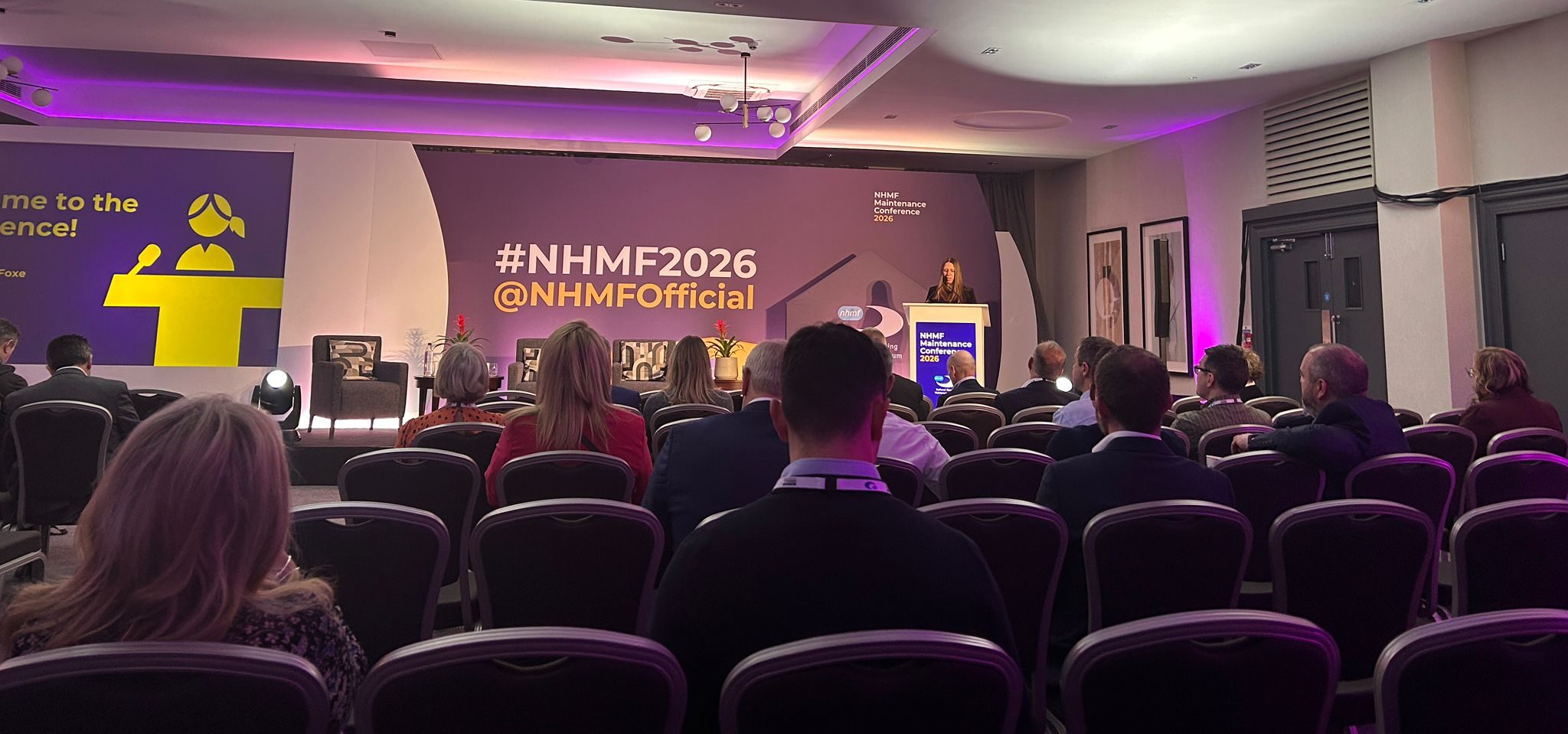Ian Williams: Meet the Supplier in Latest Feature
In our latest Meet the Supplier feature, we spoke with the team at Ian Williams, supplier on Lots 5, 10 and 11 of our Building and Fire Safety framework, and Lot 2 of our GFP Decarbonisation Delivery framework. The team shared their thoughts on some of the biggest challenges currently impacting the sector, it’s dedication to technology, and gave us an insight into how this family owned business, first founded in 1946, has climbed the ranks to become a major player in the industry.

What is your company’s mission statement/aims/objectives?
Ian Williams, a privately-owned property services company founded in 1946, specialises in innovative painting, planned investment, and repair services. Our passion for investing in our people and processes drives us to deliver high-quality services to customers and stakeholders.
Our mission is to be a company loved by its employees and customers, supported by our values of honesty, commitment and integrity in everything we do. We treat others as we would expect to be treated, and by putting the wellbeing of our people above everything, we ensure they flourish and grow.
Can you give us a brief history of your company?
Ian Williams was founded in 1946 in Cardiff as a painting contractor. Since then, we have grown considerably and continue to train and develop our significant directly employed workforce, now operating in 22 regional locations across the UK from the North West to Plymouth. This has included the introduction of a National Customer Service Centre ‘iwhub’ in Birmingham in 2013. We have remained a financially secure company with excellent D&B ratings and industry-leading supplier payment terms. Our order book remains strong, with contracts extending to 2037.
What are the benefits of being a supplier on Pretium’s frameworks?
Frameworks provide us with the opportunity to enhance existing customer relationships by collaborating on additional works. There is also a reduction in administration costs associated with full scale bidding.
What specific products or services does your company deliver through the framework (s)?
Decarbonisation and all related elements, fire safety projects up to £2M, fireproofing and stopping.
What sets your business apart from its competitors?
Continued investment in direct delivery, apprentices and sustainable futures. Ian Williams also has an outstanding health and safety record, recognised by RoSPA Order of Distinction 2024, following 16 consecutive years of Gold awards.
How does your company contribute positively to the communities it operates in?
We operate 22 offices across the UK with different business streams. This ensures a local presence of office and site teams who live within the local communities they work in. Each of these offices manage local social value projects and invest in skills, training, local employment and apprenticeships including supporting people back into the workplace. These efforts are matched by the IW Foundation which manages Ian Williams’ local and national charitable giving.
What will be the key areas of focus for your business over the next 12 months?
The key areas of focus for our business over the next 12 months will be continuing to grow our direct workforce and working collaboratively with sustainable clients on long-term contracts. We also remain focused on quality and cost-effective delivery to ensure we can reinvest in our people and processes.
What are the biggest challenges currently facing the housing sector?
Some of the biggest challenges currently facing the sector include housing and skills shortages, affordability, an ageing housing stock that is not fit for purpose or poorly maintained, a lack of asset data, financial pressures and future proofing stock to meet climate change/sustainability agenda. These are underpinned by a range of regulatory changes.
What are the biggest challenges currently facing your company and your supply chain partners?
We are currently seeing skills shortages across all trades, which we mitigate with our apprenticeship and trainee programmes, and unachievable/unrealistic pricing in the industry, without consideration of actual cost base. Although we are seeing improvements in our supply chain, cost inflation is still a key challenge, including in the fleet industry where lead-in time delays and higher-than-inflation price rises are still frequent. Our partners are also seeing exceptional increases in container/transportation charges due to Red Sea shipping route disruptions. Another challenge is the differing levels of sustainability reporting and offerings from the supply chain.
Are there any recent innovations or developments in your business that excite you?
Our investment in technology is particularly exciting – we have grown our in-house IT team by 80% to maximise the investment we can make in technology both in house and externally with our customers. This forms part of our investment in our people and processes to drive through quality services.
If you were Housing Minister for the day, what would you change?
If we were Housing Minister for the day, we would incentivise developers to build more low-cost homes and reserve a proportion of new developments for affordable housing. We would also implement stronger rent control measures to ensure renting is a viable option for everyone, expand support services for the homeless and pass through community development projects to improve the quality of life in neighbourhoods.
Can you tell us an interesting fact about your organisation?
Ian Williams has remained a family-owned business since 1946. Since our inception, we have increased our direct workforce to over 900 operatives. We have high retention levels, with the average length of service at eight years, generations of employee families working in our teams, and three recent celebrations of 50 years’ service!
What impact has the Building and Fire Safety Act had on the delivery of projects within the sector?
The Building and Fire Safety Act has introduced new challenges and costs. This includes delays in ensuring new requirements are met, for example the implementation of advanced fire safety systems. For both parties this includes increased accountability and evidencing competency of those who work on the projects and the data that arises from these projects to address the changing regulatory landscape.
In retrofitting existing buildings, what are some innovative solutions you’ve seen to improve energy efficiency or reduce carbon emissions?
Deep energy retrofits: an understanding of the long- and short-term value of assets and transitioning existing buildings from fossil fuel-based systems to electric systems powered by renewable energy. The market has expanded recently with a wealth of smart building technologies to optimise energy use. From a supply chain perspective, we would say the use of materials with low embodied carbon such as recycled steel.







